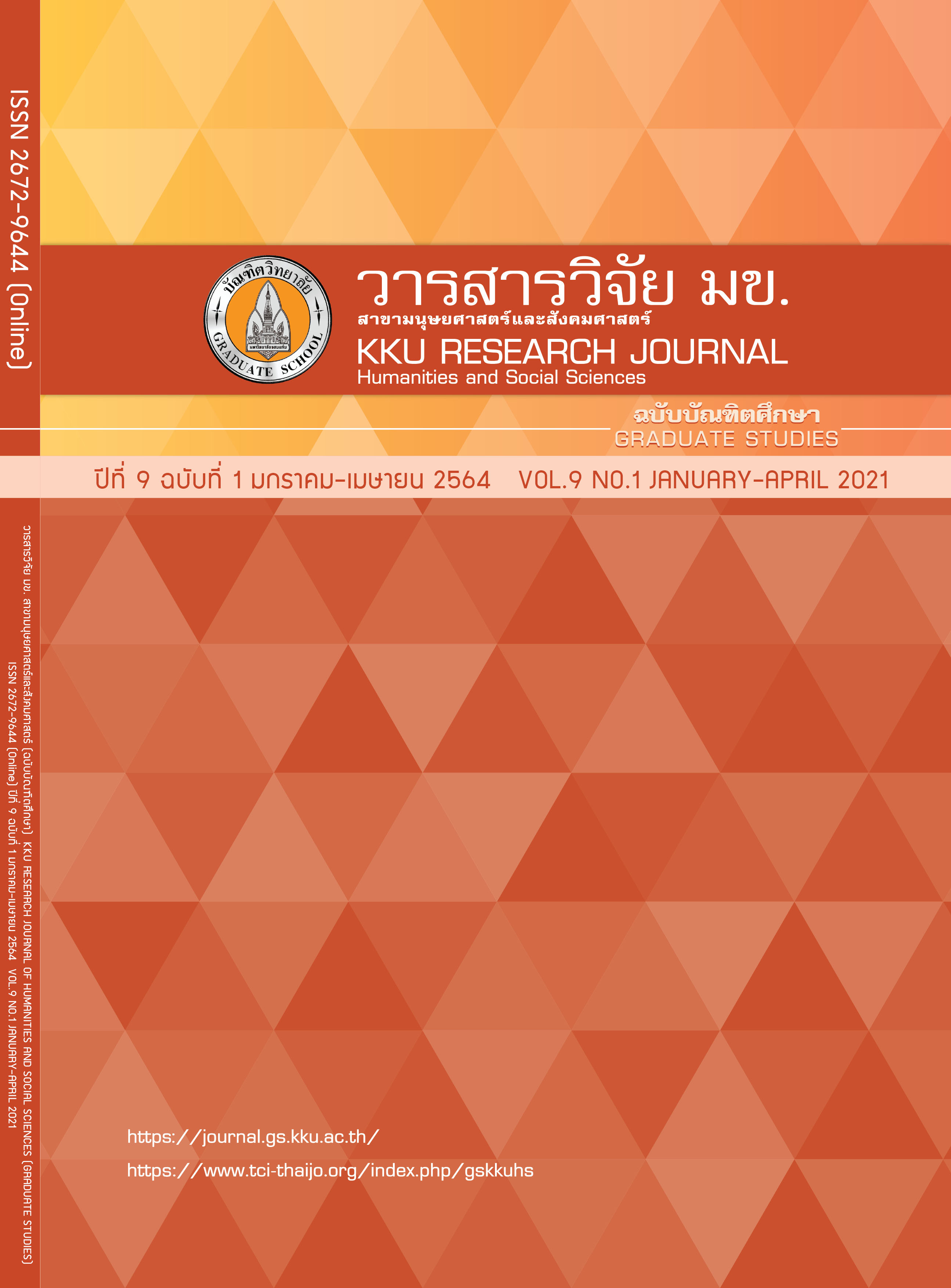Guidelines for Creative School Management of Basic Education School Administrators in The 4.0 Era
Keywords:
Creative guidelines for school management, School administrators, Basic educationAbstract
The purpose of this article is to propose the guidelines for creative school management of basic school administrators in the 4.0 era with integrated teaching and learning about educational technology innovations to achieve learning and have desirable characteristics in the future and It has been used to create achievement for basic education with much more efficiency and effectiveness. Maps As for the guidelines for creative school management of basic school administrators, there must be integrated teaching and learning with educational technology innovation in the 4.0 era. Digital media are a medium for connecting education in a systematic manner and developing a national network of cooperation with quality standards for all students to create intellectual capital with value and benefit. Achieve goal by encouraging the learners to self-study simple and modern Appropriate to the interests and can apply the knowledge to practical use In line with the goal of achieving the most desired future traits that will benefit one's self Basic school Society and the nation.
References
Ministry of Education. Education quality assurance 2018. The Government Gazette. 2018: 1-5.
Ministry of Education. Education reform. Bangkok: The Cabinet and the Government Gazette Publishing House; 2019.
Office of the National Education Commission. National Education Act 1999 Amendment (Version 2) 2002 and (Version 3) 2010 [internet]. 2019 [cited 2019 Nov 5]. Available from: https://person.mwit.ac.th/01-Statutes/ National Education.pdf
Office of the National Economic and Social Development Board. The 12th National Economic and Social Development Plan 2017-2021 [internet]. 2016 [cited 2019 Nov 1]. Available from: https://www. nesdb. go.th/ ewt_ dl_link.php?nid=6422
Ministry of Education. Information and Communication Technology. Master Plan for Education Ministry of Education. [n.p.]; 2016.
Suen H. Peer assessment for massive open online courses (MOOCs) International Review of Research into Open and Distance L. London: International Thomson; 2014.
Conneely C, Girvan C, Lawlor J, Tangney B. An exploratory case study into the adaption of the Bridge 21 Model for 21st Century Learning in Irish Classrooms. San Francisco: Jossey-Bass Publishing; 2018.
Ang L. Community relationship management and social media. Journal of Database Marketing & Customer Strategy Management. 2011; 18(1): 31-38.
ASEAN Economic Community. Knowledge about ASEAN [internet]. 2019 [cited 2019 Nov 5]. Available from: http://www.thai-aec.com/%
Paloff R, Pratt K. Collaborating Online: Learning Together in Community. [n.p.]; Jossey-Bass; 2016.
Schmidt S, Shea P. NANSLO Web-based Labs: Real Equipment, Real Data, Real People! WCET Frontiers. New York: Cambridge University Press; 2015.
Mayer RE. Multimedia learning. 2nd ed. New York: Cambridge University Press; 2009.
Means B, et al. Evaluation of Evidence-Based Practices in Online Learning: A Meta-Analysis and Review of Online Learning Studies. Washington, DC: US Department of Education; 2009.
Koumi J. Learning outcomes afforded by self-assessed, segmented video-print combinations Academia.edu. London: Routledge; 2015.
Office of the Commission National Education. Quality of teachers to quality of learning. [n.p.]; 2017.
Kop R. The Challenges to Connectivity Learning on Open Online Networks: Learning Experiences during a Massive Open Online Course International. Review of Research into Open and Distance Learning. 2011; 12(3).
Dabbagh N. The online learner: characteristics and pedagogical implications. Contemporary Issues in Technology and Teacher Education. 2007; 7(3): 217-226.
Evans T, Haughey M, Murphy D. International Handbook of Distance Education. Bingley, UK: Emerald Publishing; 2018.
Knox J. Digital culture clash: ‘massive’ education in the e-Learning and Digital.Cultures Distance Education. 2014; 35(2).
Johnson H, Mejia M. Online learning and student outcomes in California’s community colleges San Francisco. CA: Public Policy Institute of California; 2014.
Jung I, Latchem C. Quality Assurance and Accreditation in Distance Education and e-Learning. New York: Routledge; 2012.




